Console pianos are a type of upright piano that is designed to be more compact compared to traditional grand pianos. They are typically between 40 to 44 inches in height, making them an excellent choice for those with limited space in their homes.
Console pianos produce a rich and full sound similar to grand pianos, making them a popular option for beginners and intermediate players. They are often more affordable than grand pianos and are a great choice for those looking for a high-quality piano in a more compact size.
What do you know about console pianos?
What Defines a Console Piano?
Console pianos offer a distinctive advantage with their compact action, featuring shorter hammers compared to larger upright models. Additionally, the console’s action positioned above the keys, as opposed to below them like in spinets, typically results in a superior playing experience.

Notably, console pianos are slightly taller than a spinet, but shorter than studio upright models, making them an attractive option for those seeking a balance between performance and space efficiency. It typically stands around 40 to 44 inches tall, making it a popular choice for both beginners and experienced players alike.
The size of a console piano strikes a balance between compactness and sound quality, offering a rich tonal range despite its more modest dimensions.
Evolution of the Console Piano
The history of the console piano dates back to the 19th century when piano manufacturing was thriving. As demand grew for more compact yet resonant instruments, the console piano emerged as a versatile solution. Companies like Kimball gained prominence for producing high-quality console pianos that found homes in music schools, homes, and performance venues.
Console Pianos vs. Other Upright Variants

Console pianos offer players accessibility, comfort, and versatile placement options, making them a practical choice for various living spaces.
With durability, customization options, and maintenance tips, console pianos are designed to stand the test of time. Their historical significance, renowned models, and cultural influence further contribute to their charm.
From educational value to community engagement, console pianos offer numerous benefits, including sustainability, artisan craftsmanship, and emotional resonance. Embracing the timeless elegance of console pianos brings a sense of musical inspiration, creative expression, and a legacy of excellence that continues to enchant players and audiences.
Console vs Upright Piano: Understanding the Distinctions
While both console and upright pianos belong to the same family of vertical pianos, they differ in size and sound production. Console pianos are taller than spinets and more compact than studio uprights, striking a middle ground in terms of aesthetics and acoustics.
Their height allows for longer strings and larger soundboards compared to spinets, resulting in a richer sound quality.
Renowned Models and Manufacturers
Several renowned piano manufacturers have made notable contributions to the development and refinement of console pianos. Companies like Kimball, Baldwin, Yamaha, and Kawai have established a legacy of excellence in crafting high-quality instruments that combine artistry with innovation.
The Enduring Charm of Yamaha Console Pianos
Yamaha console pianos are renowned for their exceptional craftsmanship and superior sound quality, making them a popular choice among musicians worldwide. With a perfect blend of innovation and tradition, Yamaha consistently delivers instruments that inspire creativity and musical expression.
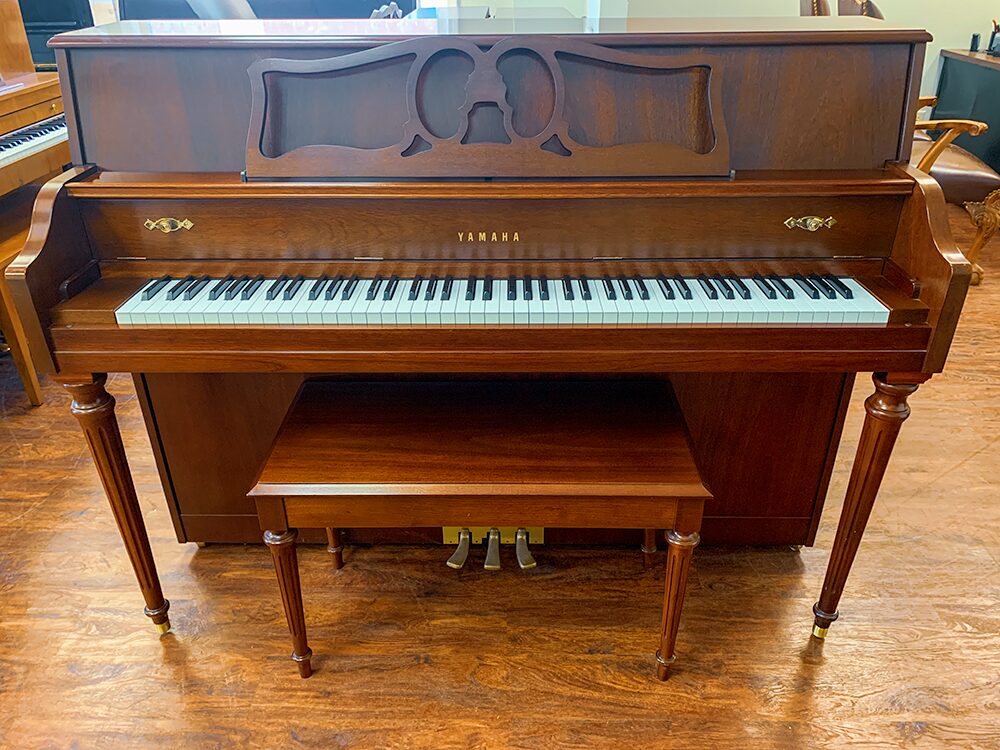
The Yamaha M500S Console Piano represents Yamaha’s legacy of excellence in piano craftsmanship. Its compact design and superior construction make it ideal for any space, while its rich tone and responsive keyboard action cater to both beginner and experienced pianists.
With Yamaha’s reputation for reliability and durability, the M500S stands as a timeless instrument capable of delivering exceptional musical performance for years to come.
The Allure of Kimball Console Pianos
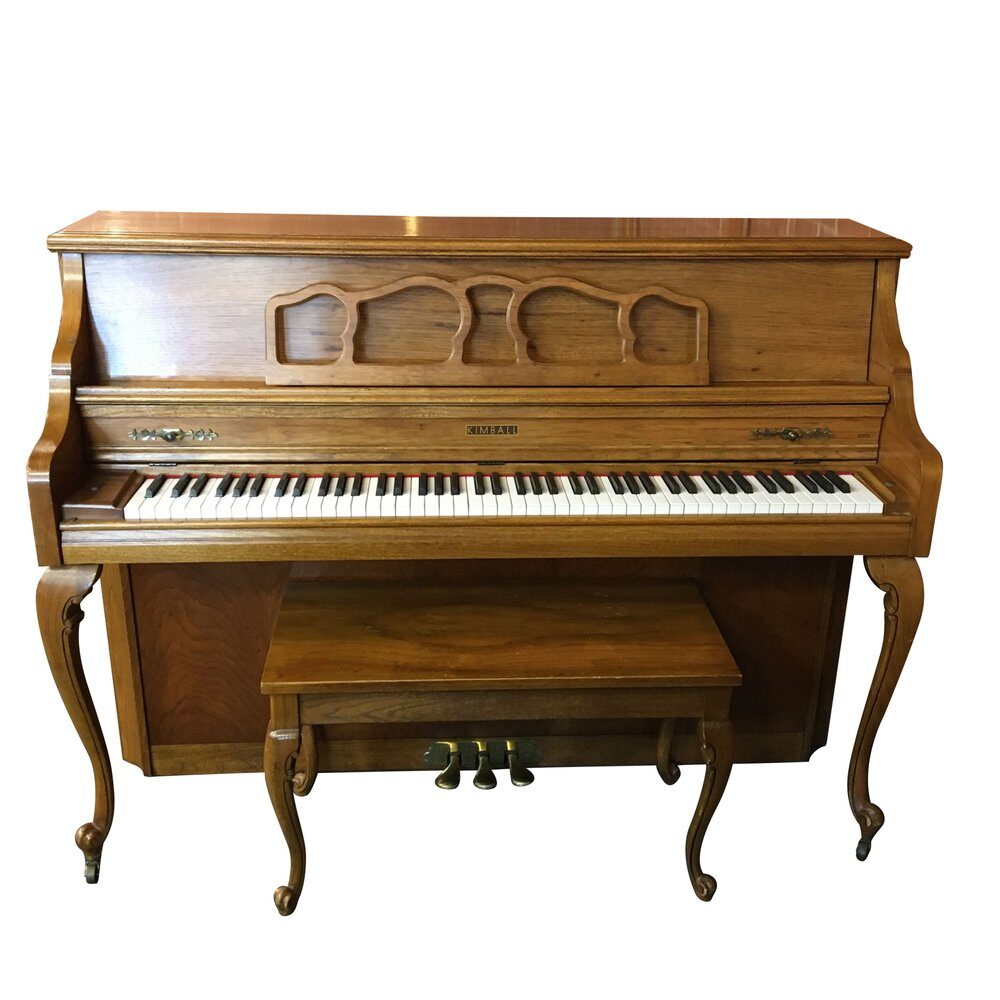
Kimball console pianos have garnered a reputation for their craftsmanship and musicality. With a commitment to quality construction and attention to detail, Kimball pianos offer players a blend of elegance and performance.
The brand’s dedication to producing reliable and resonant instruments has made Kimball console pianos a sought-after choice among musicians and enthusiasts.
The Timeless Sophistication of Kawai Console Pianos
Kawai console pianos epitomize excellence in craftsmanship and musical performance. Known for their meticulous attention to detail and innovative technology, Kawai instruments deliver a rich, expressive tone and responsive touch.
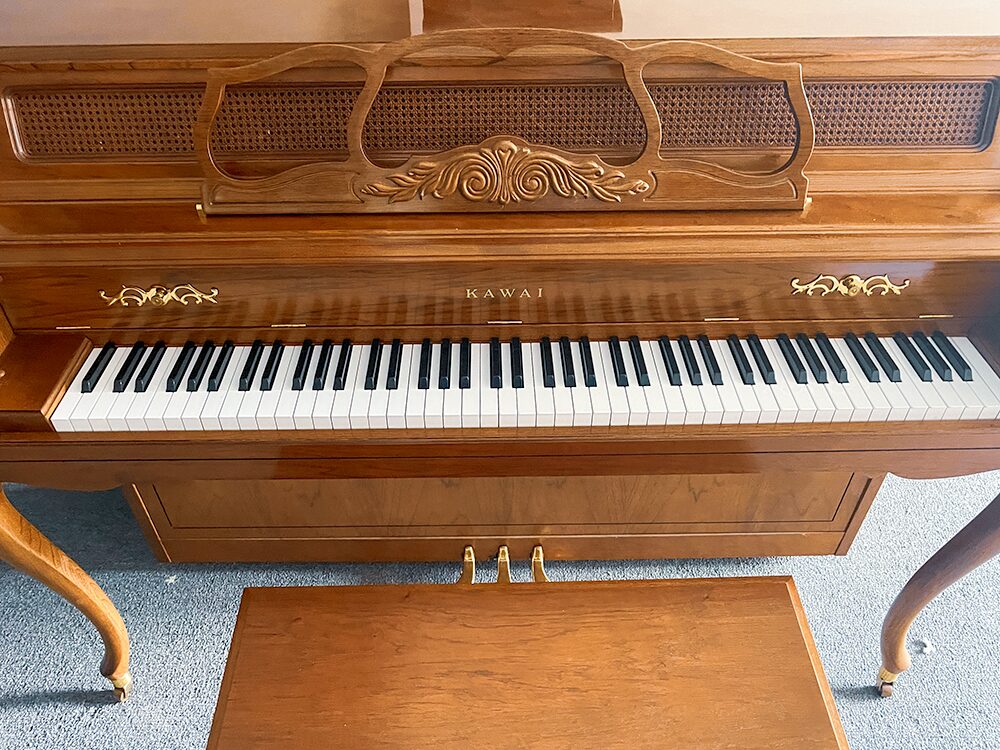
Experience the unparalleled sophistication of the Kawai 706F Console Piano, renowned for its timeless elegance. With its compact design and impeccable construction, this instrument offers a timeless blend of elegance and musicality suitable for musicians of all levels.
The Elegance of Baldwin Console Pianos

The Baldwin Console Piano, crafted by the renowned American manufacturer Baldwin, epitomizes quality craftsmanship and exceptional sound. Its upright design makes it suitable for smaller spaces without compromising on the rich tone associated with Baldwin instruments.
Known for its sturdy construction and superior materials, the Baldwin Console Piano delivers a warm, balanced tone with excellent projection, making it versatile for various musical genres. With its elegant design and reliability, it stands as a cherished instrument capable of lasting for generations.
Each manufacturer brings its unique design elements, materials, and craftsmanship to create console pianos that resonate with musicians and audiences alike. Whether seeking a classic, traditional model or a modern, technologically advanced instrument, players have a diverse range of options to choose from.
The Advantages of Console Pianos
Console pianos embody a harmonious blend of elegance, musicality, and versatility, making them a sought-after choice for players of all levels. Their compact design, enhanced sound quality, and ergonomic features provide a seamless playing experience while adding a touch of sophistication to any space.
With a focus on durability, customization, and maintenance, console pianos stand as enduring symbols of craftsmanship and artistry. Their cultural significance, renowned heritage, and emotional resonance further enhance their enduring appeal, captivating hearts and minds with the timeless beauty of music.
Compact Design for Versatile Placement
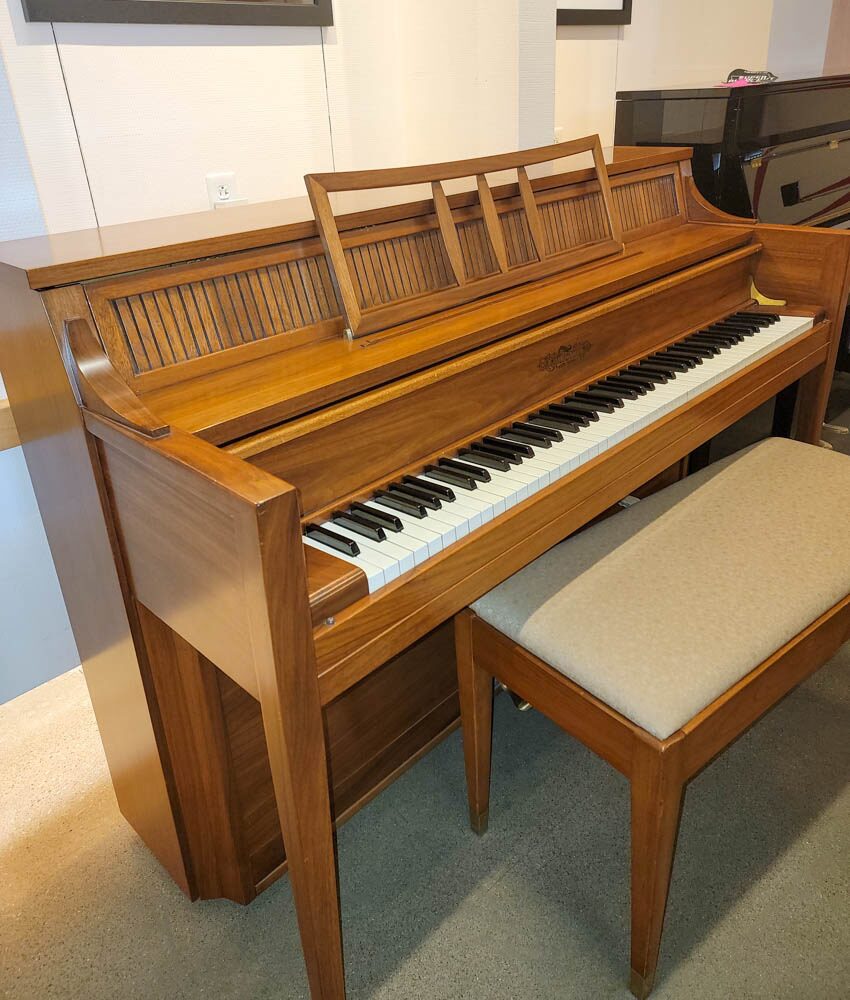
One of the key advantages of console pianos is their compact design, which makes them well-suited for various living spaces. Whether in a cozy apartment, music studio, or practice room, console pianos can fit seamlessly into different environments without compromising on sound quality.
Their vertical orientation also saves valuable floor space, making them a practical choice for urban dwellings.
Enhanced Sound Projection and Quality
Despite their smaller stature, console pianos offer impressive sound projection and tonal quality. The taller frame of a console piano allows for longer strings and a larger soundboard, resulting in a fuller and more resonant sound compared to smaller vertical pianos.
This characteristic makes console pianos a popular choice for players looking for a harmonious blend of size and sound performance.
Accessibility and Comfort for Players
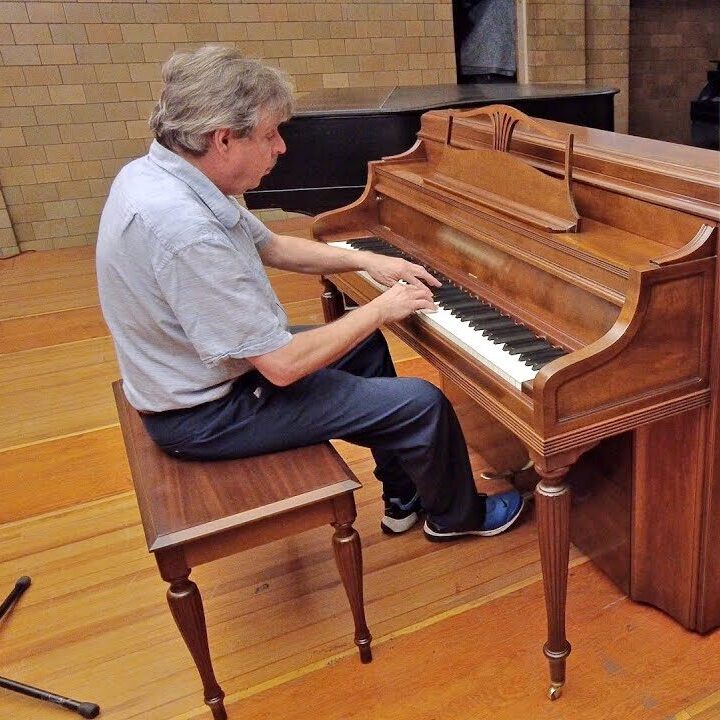
Console pianos are designed with player comfort in mind, featuring a key height and action mechanism that promote ease of playing. The ergonomic design of console pianos ensures that musicians can practice for extended periods without experiencing strain or discomfort. This accessibility factor makes console pianos an attractive option for both beginners and seasoned players seeking a responsive and user-friendly instrument.
Stay tuned for more insights into the world of console pianos, including maintenance tips, renowned models, and the enduring appeal of these versatile instruments. Unveiling the Advantages of Console Pianos
Versatile Placement Options
Console pianos are prized for their compact design, which offers versatility in placement within various living spaces. Whether in a small apartment, music studio, or practice room, console pianos seamlessly integrate into different environments without compromising on sound quality.
Their vertical orientation not only saves floor space but also provides a visually striking centerpiece that enhances the ambiance of any room. The compact footprint of console pianos makes them an ideal choice for urban dwellers or those with limited space.
Durability and Longevity

Console pianos are known for their robust construction and durability, making them a long-term investment for musicians and music enthusiasts. The quality materials and craftsmanship that go into the production of console pianos ensure that they withstand the rigors of regular use and maintain their tonal integrity over time.
With proper maintenance and care, a well-built console piano can serve as a reliable musical companion for generations, offering timeless enjoyment and musical inspiration.
Customization and Personalization

Another advantage of console pianos is the opportunity for customization and personalization to suit individual preferences and musical styles. Many manufacturers offer a range of finish options, from traditional polished ebony to contemporary satin finishes, allowing players to select a console piano that complements their décor and aesthetic tastes.
Additionally, some models may offer unique design elements or technological enhancements, such as silent play systems or adjustable touch sensitivity, to cater to the specific needs of the player.
Maintenance and Care Tips for Console Pianos
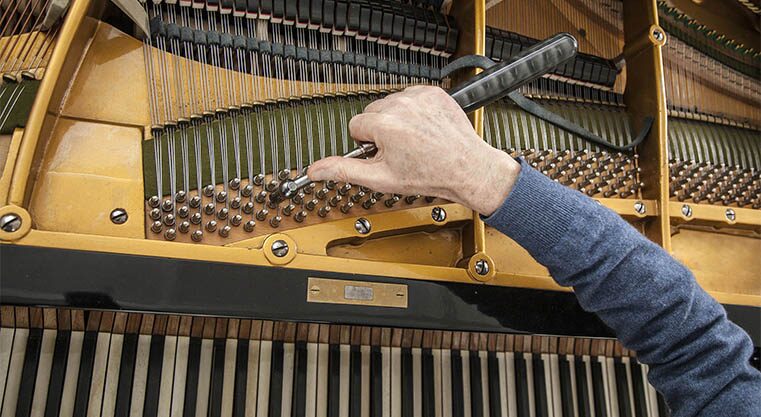
Some important features of console piano are the enduring appeal and timeless elegance. These instruments offer a harmonious blend of functionality, artistry, and musical excellence, with features such as compact design, enhanced sound projection, and customization options.
Console pianos provide players with accessibility, comfort, and durability, making them ideal companions for music enthusiasts of all levels. Their historical significance, cultural influence, and renowned models contribute to their lasting appeal in the world of music.
Embracing the elegance of console pianos not only brings joy and inspiration to players but also upholds a legacy of excellence and artistic expression that transcends generations.
Regular Tuning and Regulation
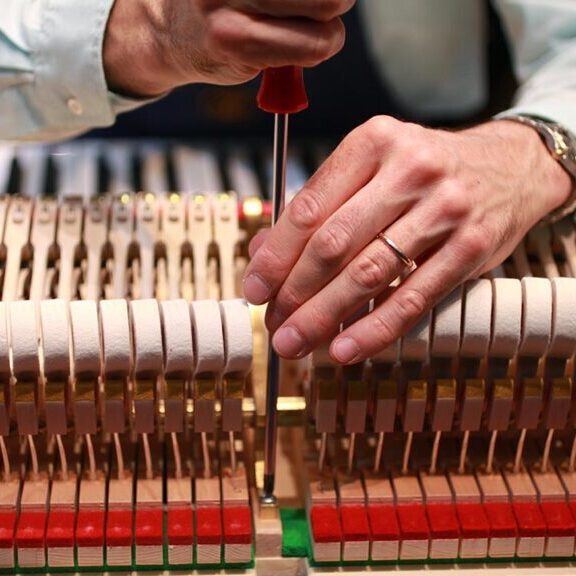
To ensure optimal performance and longevity, it is essential to schedule regular tuning and regulation sessions for your console piano. Changes in humidity, temperature, and usage can affect the instrument’s tuning and action, necessitating adjustments by a qualified piano technician.
By maintaining a consistent tuning schedule and addressing any mechanical issues promptly, you can preserve the sound quality and playability of your console piano.
Humidity Control and Climate Maintenance
Console pianos are sensitive to fluctuations in humidity and temperature, which can impact their tuning stability and structural integrity. To protect your instrument from environmental changes, consider investing in a hygrometer to monitor humidity levels in the room where the piano is situated.
Additionally, using a dehumidifier or humidifier, depending on the climate, can help maintain an optimal environment for your console piano and prevent warping or cracking of the wood components.
Proper Cleaning and Dusting
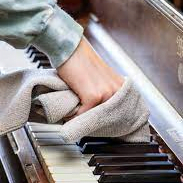
Keeping your console piano clean and free of dust is crucial for maintaining its aesthetics and functionality. Use a soft, microfiber cloth to gently wipe down the keys, cabinet, and pedals, taking care not to use harsh chemicals or abrasive materials that can damage the finish.
Regular dusting helps prevent the buildup of debris and preserves the luster of the piano’s exterior, ensuring that it remains a visually appealing focal point in your space.
Preventative Maintenance and Inspections
In addition to regular tuning and cleaning, it is advisable to schedule periodic inspections and preventative maintenance checks for your console piano. A qualified piano technician can assess the instrument’s condition, identify any potential issues, and recommend necessary adjustments or repairs to ensure its continued performance.
By addressing minor problems proactively, you can avoid more significant damage and prolong the lifespan of your console piano.
Stay tuned for more insights into the world of console pianos, including renowned models, historical significance, and expert recommendations for selecting the perfect instrument to enhance your musical journey. The Enduring Appeal of Console Pianos
Why Choose a Console Piano?
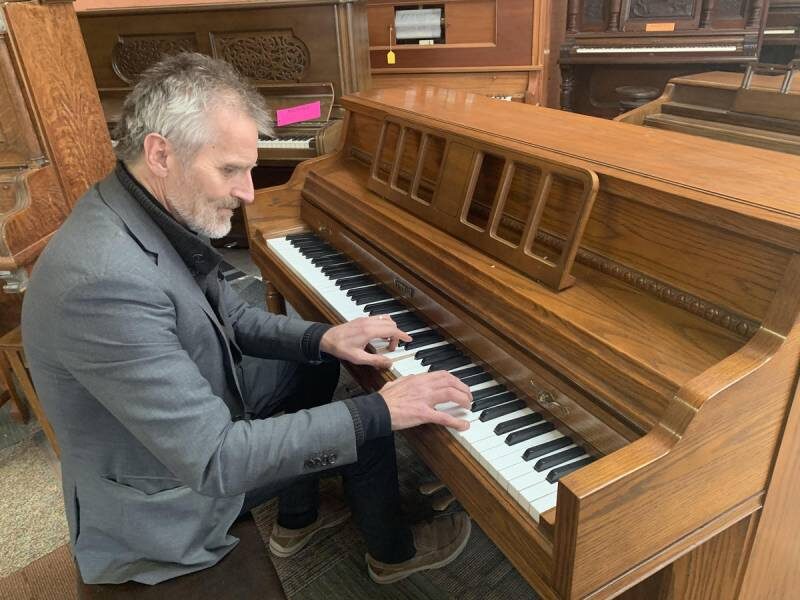
Historical Significance and Cultural Influence
Console pianos have played a significant role in the evolution of keyboard instruments and music-making throughout history. From their origins in the 19th century to their continued popularity in modern times, console pianos have been cherished for their versatility, aesthetics, and musical capabilities.
Embracing the heritage and excellence of console pianos invites individuals to experience the transformative power of music and the intrinsic connection between art, creativity, and the human spirit.
Musical Versatility and Performance Capabilities
Console pianos are prized for their musical versatility and performance capabilities, making them a versatile choice for pianists of all levels. The well-balanced sound profile of a console piano, coupled with its responsive key action and dynamic range, allows musicians to explore a wide repertoire of musical genres and styles with precision and expression.
Whether practicing classical sonatas, jazz standards, contemporary pop hits, or original compositions, players can rely on the consistent tone and playability of a console piano to bring their musical visions to life.
Aesthetic Appeal and Design Elegance
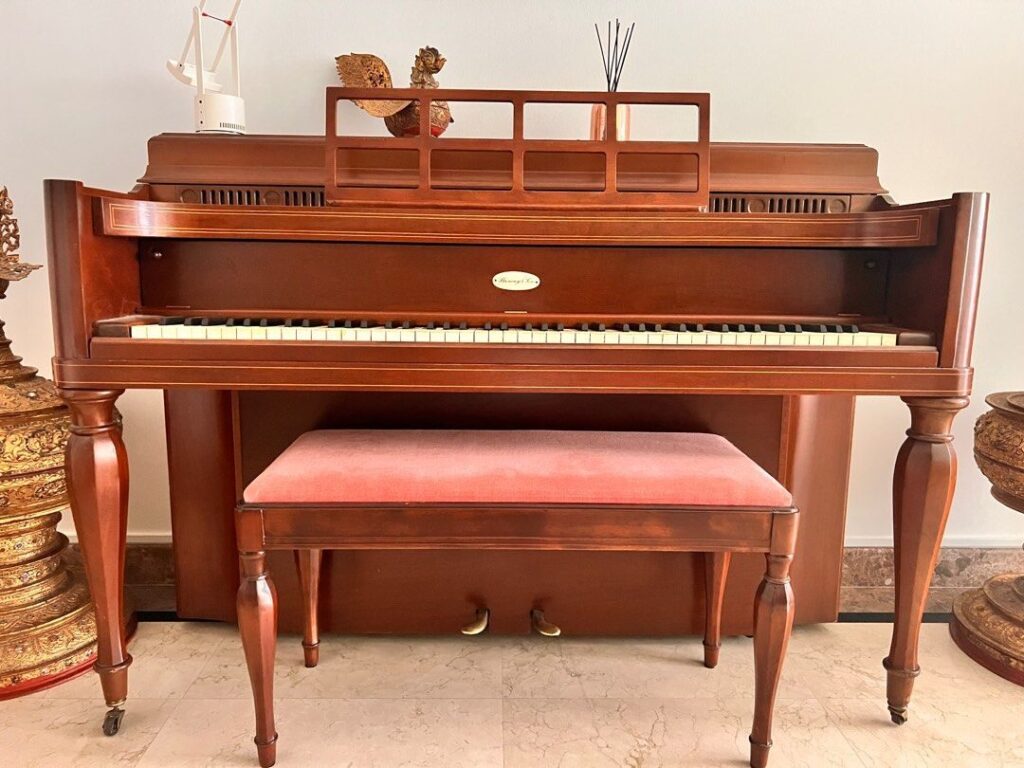
Console pianos captivate both music enthusiasts and interior decorators with their timeless elegance and sophisticated design. The slender profile, graceful curves, and exquisite finishes of console pianos make them a striking focal point in any room.
Whether showcasing a classic polished ebony cabinet, a contemporary satin walnut veneer, or a custom hand-painted design, console pianos add a touch of luxury and refinement to residential and commercial spaces alike. Their harmonious blend of form and function elevates the aesthetic appeal of interiors, creating a sense of artistic balance and musical inspiration.
Sound Quality and Acoustic Excellence
Beyond their visual allure, console pianos are prized for their exceptional sound quality and acoustic excellence. The taller frame of a console piano allows for longer strings and a larger soundboard, resulting in a rich, resonant tone that projects with clarity and depth.
Musicians appreciate the balanced tonal palette, dynamic responsiveness, and expressive range of console pianos, which enable them to convey emotions and nuances in their performances with precision and artistry. Whether playing gentle melodies or powerful chords, players can rely on the superior sound projection and tonal clarity of a console piano to deliver captivating musical experiences.
Artisan Craftsmanship and Attention to Detail
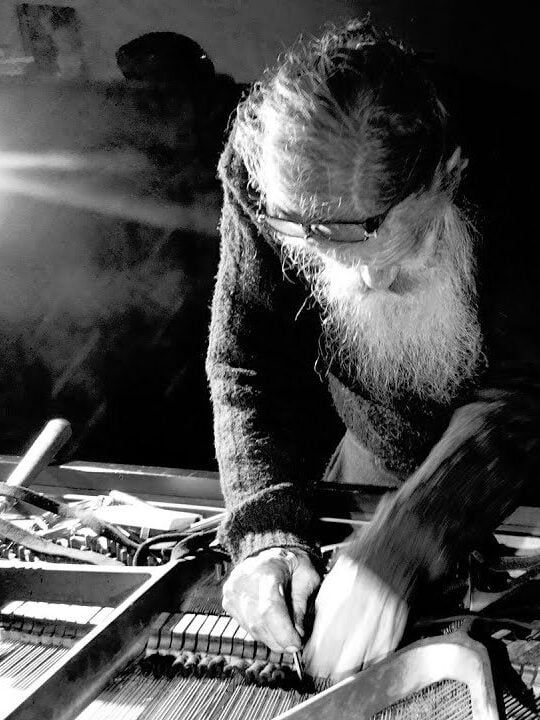
Crafting a console piano requires a meticulous blend of artisanship, precision engineering, and quality materials to achieve a harmonious balance of aesthetics and performance. Skilled artisans meticulously assemble each component, from the soundboard and strings to the action mechanism and keyboard, with precision and care.
The fine craftsmanship and attention to detail that go into the construction of console pianos ensure that every instrument meets exacting standards of quality and excellence. Whether hand-finishing the cabinet, voicing the hammers, or regulating the action, each step in the manufacturing process contributes to the unique character and musicality of a console piano.
Conclusion
In conclusion, console pianos are a remarkable blend of elegance, functionality, and musical excellence. With their compact design and enhanced sound projection, they offer players accessibility, comfort, and versatile placement options.
Console pianos boast durability, customization options, and maintenance tips to ensure they stand the test of time. Their historical significance, cultural influence, and renowned models contribute to their enduring appeal. From educational value to community engagement, console pianos offer a multitude of benefits.
Frequently Asked Questions
What is a console piano worth?
The value of a console piano varies depending on factors such as brand, overall condition, quality of craftsmanship, and specific features. Console pianos typically range in height from 42″ to 44″ and in price from $2,250 to $5,500.
You can find options from reputable brands like Kawai, Yamaha, Steinway, Charles R. Walter, Young Chang, and others within this price range. Factors such as the piano’s age, maintenance history, and any additional features or upgrades can influence its worth within this price range.
How does a console piano differ from other types of pianos?
Unlike a grand piano, which has horizontal strings and a larger soundboard, a console piano has vertical strings and a smaller soundboard. This results in a slightly different tone quality and projection. Additionally, console pianos are typically more affordable and easier to move compared to grand pianos.
Should I buy a console piano?
Console pianos are suitable options, especially for beginners or those involved in education, offering adequate performance for several years. However, as the music becomes more demanding, professional-level pianos are generally preferred due to their superior touch and tone response.
Hence, when considering whether to buy a console piano, it’s essential to assess your current needs and future aspirations in music to make a decision based on your playing level and desired musical progression.